Integrating the Red Hat Enterprise Linux (RHEL) web console and the Satellite management interface can simplify administration and save time.
Read More at Enable Sysadmin
Integrating the Red Hat Enterprise Linux (RHEL) web console and the Satellite management interface can simplify administration and save time.
Read More at Enable Sysadmin
Quiet your pager and keep users happy by using automation to recover from common IT service failures.
Read More at Enable Sysadmin
Elasticsearch and Kibana offer a comprehensive tool for doing real-time web server monitoring and analytics.
Read More at Enable Sysadmin
The US DoD, DARPA, and NWIC Pacific host mini summit on accelerating innovation and deployments at scale based on open source 5G architecture & use cases
SAN FRANCISCO, September 22, 2021 – The Linux Foundation, the nonprofit organization enabling mass innovation through open source, along with co-hosts LF Edge, LF Networking, and Cloud Native Computing Foundation (CNCF), today announced additional programming for ONE Summit contributed by the United States government. New programming includes a keynote address by Dr. Dan Massey, Project Leader, Operate through DoD 5G to NextG Initiative, as well as a US GOV OPS Mini Summit.
“We are honored to have such a broad and distinguished swath of experts participating in ONE Summit,” said Arpit Joshipura, general manager, Networking, Edge and IoT, the Linux Foundation. “The latest additions to our program bring an even more diverse perspective on the future of 5G, and how initiatives like the 5G Super Blue Print can be consumed by both governments and enterprises.”
Dr. Dan Massey, who leads the Operate Through portion of the DoD 5G to NextG Initiative, will give a keynote address on “Securly Operating through 5G Networks” on Monday, October 11 at 12:15pm PST. Operate Through aims to ensure the DoD can securely operate through commercial 5G networks across the globe.
Following a keynote by Dr. Jonathan Smith during the Open Networking & Edge Executive Forum (ONEEF) earlier this year, the US GOV OPS mini summit will examine requirements and progress of 5G, edge, and IoT technologies within enterprise and government entities. Hosted by NWIC Pacific division of the United States Navy and led by Doug Evans, Neil Hoff and Andrew Leidy from the Department of the Navy, the program will cover use cases and solutions that rely on the foundations of open source networking, edge, and cloud project communities (including LF Networking, LF Edge, CNCF, Kubernetes, Magma, and more). Specific discussion topics include:
Introduction to United States Government Open Programmable Secure (US-GOV OPS) initiative within the Linux Foundation Overview of DARPA’s Open, Programmable, Secure 5G (OPS-5G) project The Linux Foundation’s 5G Super Blue PrintDiscussion of the Office of the Under Secretary of Defense (OUSD) for Research & Engineering’s 5G initiative, and the Multi-site OPS-5G Joint Independent Test Option (MOJITO) project
The mini-summit takes place October 11 from 2:00 PM to 4:50 PM PST. Registration to this mini-summit is included in the overall conference registration. Standard registration ends October 5, so register today for only US$50.
For more details on the ONE Summit, including information on registration and program agenda, please visit: https://events.linuxfoundation.org/open-networking-edge-summit-north-america/
About the Linux Foundation
Founded in 2000, the Linux Foundation is supported by more than 2,000 members and is the world’s leading home for collaboration on open source software, open standards, open data, and open hardware. Linux Foundation’s projects are critical to the world’s infrastructure including Linux, Kubernetes, Node.js, and more. The Linux Foundation’s methodology focuses on leveraging best practices and addressing the needs of contributors, users and solution providers to create sustainable models for open collaboration. For more information, please visit linuxfoundation.org.
The post The Linux Foundation’s Open Networking and Edge (ONE) Summit Expands Programming with Keynote and Mini Summit by the US Government, Enabling Secure, Open, and Programmable 5G Networks appeared first on Linux Foundation.
Use this tool to build an API without code
DataTrucker is an open source no-code/less-code backend that builds APIs using Kubernetes templates.
gshankar
Tue, 9/21/2021 at 7:54pm
Image
500photos.com from Pexels
Application programming interfaces (APIs) are like fuel for digital transformation, enabling companies to develop applications and microservices quickly. DataTrucker.IO is a new, free and open source (Apache 2.0) no-code/less-code API backend that decreases the time required to build APIs.
Topics:
Database
Programming
Java
YAML
Read More at Enable Sysadmin
Rooted in academia, the PaSh project prepares for industrial adoption
SAN FRANCISCO, Calif., September 21, 2021 — The Linux Foundation, the nonprofit organization enabling mass innovation through open source, today announced it will host the PaSh project. PaSh is a system for automatically parallelizing POSIX shell scripts that optimizes programs and speeds up execution times, leading to faster results for data scientists, engineers, biologists, economists, administrators, and programmers.
The project is supported by MIT, Rice University, Stevens Institute of Technology, and the University of Pennsylvania and governed by a Technical Steering Committee that includes Nikos Vasilakis, research scientist at MIT; Michael Greenberg, assistant professor at Stevens Institute of Technology; and Konstantinos Kallas, Ph.D. student at University of Pennsylvania.
“The Linux Foundation offers the technical governance infrastructure and services that PaSh has come to require as it has become more mature,” said Nikos Vasilakis, Technical Steering Committee chair for the PaSh Project. “We created the project to improve upon and accelerate the execution of shell scripts in the face of new web crawling, indexing and natural language processing changes.”
Konstantinos Kallas, Technical Steering Committee member for the PaSh project, adds “PaSh has received significant attention from the academic community and has the potential for an outsized impact in industry today, due to several synergistic trends. This is the right move at the right time.”
The techniques underpinning the project have gathered several awards, including a best paper award at the 16th edition of the EuroSys conference and a graduate research award for Konstantinos by the Association of Computing Machinery.
From succinct data wrangling and everyday processing to system orchestration and administration, shell scripting—the ever-present glue holding commands developed in different languages together—forms the backbone of today’s computing userspace. PaSh parallelizes shell scripts, achieving significant performance improvements. On modern multiprocessor computers, PaSh can execute tasks like web crawling and indexing, COVID19-related analyses, natural-language processing, and other workloads in a fraction of their original time with minimal-to-zero developer effort.
“Shell scripts have been used pervasively for half a century, and recent trends towards ‘containerization’ have only increased their importance,” said Michael Greenberg, Technical Steering Committee member for the PaSh Project. “The correct and automated parallelization of shell scripts has been an issue for several decades. PaSh promises a speed boost to shell users of all stripes.”
To accelerate shell scripts, PaSh provides a source-to-source parallelizing compiler, a program that takes as input a programmer’s shell script and returns a new program that is significantly faster than the original program. Since PaSh is source-to-source, it allows the optimized shell script to be inspected and executed using the same tools, in the same environment, and with the same data as the original script. A small runtime library and associated annotations on programs commonly used in shell scripts complete the picture, providing the PaSh compiler with high-performance primitives and supporting its key functions.
“The PaSh Project represents innovation in computer science and open source software,” said Mike Dolan, general manager and senior vice president of Projects at the Linux Foundation. “As software development evolves to address machine learning, containerization, artificial intelligence and more, PaSh shows up to support developers and data scientists who need more out of their scripting tools. We’re happy to be able to host this important work at Linux Foundation, a natural home for a project like this.”
To learn more and to get involved in the PaSh project, please visit http://binpa.sh/
About the Linux Foundation
Founded in 2000, the Linux Foundation is supported by more than 1,000 members and is the world’s leading home for collaboration on open source software, open standards, open data, and open hardware. Linux Foundation’s projects are critical to the world’s infrastructure including Linux, Kubernetes, Node.js, and more. The Linux Foundation’s methodology focuses on leveraging best practices and addressing the needs of contributors, users and solution providers to create sustainable models for open collaboration. For more information, please visit us at linuxfoundation.org
###
The Linux Foundation has registered trademarks and uses trademarks. For a list of trademarks of The Linux Foundation, please see our trademark usage page: https://www.linuxfoundation.org/trademark-usage. Linux is a registered trademark of Linus Torvalds.
Media Contact
Jennifer Cloer
Story Changes Culture
503-867-2304
jennifer@storychangesculture.com
The post Linux Foundation to Host the PaSh Project, Accelerating Shell Scripting with Automated Parallelization for Industrial Use Cases appeared first on Linux Foundation.
This by-invitation event for Linux Foundation member organizations fosters collaboration, innovation, and partnerships among the leading projects and organizations working to drive digital transformation with open technologies.
SAN FRANCISCO, September 21, 2021 — The Linux Foundation, the nonprofit organization enabling mass innovation through open source, today announced the agenda and speaker lineup for the 2021 Linux Foundation Member Summit (LFMS), taking place November 2-4 at the Silverado Resort in Napa Valley, California. The keynote speakers can be viewed here and the full schedule can be viewed here.
LFMS, (formerly Open Source Leadership Summit), is a by-invitation event for Linux Foundation member organizations, where technical and business leaders convene to drive digital transformation and learn how to collaboratively manage the largest shared technology investment of our time. LFMS is a must-attend event for those looking to advance open source strategy, implementation and investment.
“Open source technology continues to show its strength and value to businesses across many different verticals and sectors, as well as its impact on the bottom line”, says Jim Zemlin, Executive Director, The Linux Foundation. “Our Member Summit is an opportunity for the best and brightest technical, business and community leaders to come together and share their valuable insights and experiences and to collaborate on important open source technology innovation.”
Keynote Speakers Include:
Josh Aas, Executive Director, Internet Security Research Group discussing ProssimoBrian Christian, Author, “The Alignment Problem: Machine Learning and Human Values” & “The Most Human Human“; Co-author of “Algorithms to Live By” sharing on the intersection of AI and humanity Gabriele Columbro, Executive Director, Fintech Open Source Foundation providing project updatesColin Eberhardt, Technology Director, Scott Logic discussing WebAssemblyAli Fenn, President, ITRenew talking about circular data centersJennifer Fernick, SVP & Global Head of Research, NCC Group and Dr. David A. Wheeler, Director of Open Source Supply Chain Security, The Linux Foundation discussing OpenSSFLuke Hinds, Security Engineering Lead, CTO Office, Red Hat sharing on sigstoreSumer Johal, Executive Director, AgStack Foundation providing project updatesKim Lewandowski, Product, Stealth Startup discussing the SLSA frameworkDan Lorenc, Software Engineer, Google sharing on the state of OSS Supply Chain SecurityGary O’Neall, CEO, Source Auditor Inc. and Kate Stewart, VP, Dependable Embedded Systems, The Linux Foundation discussing SPDXCalista Redmond, CEO, RISC-V International talking about open hardwareLiz Rice, Chief Open Source Officer, Isovalent discussing cloud native securityJon Stine, Executive Director, The Open Voice Network providing project updatesJenny Wanger, Director of Programs, LF Public Health providing project updatesJim Zemlin, Executive Director, The Linux Foundation providing foundation updates
Session Highlights:
The Coming Culture Challenges for Open Source Projects – Stephen Walli, MicrosoftThe Importance of DEIA (Diversity, Equity, Inclusion, Accessibility) in Open Source – Anni Lai, Futurewei; Priyanka Sharma, CNCF; Tina Tsou, Arm; and Arun Gupta, ApplePandemic Pivots of an OSPO – Nithya Ruff, ComcastThe Prometheus Story: How a Side Project Became the Global Market Leader – Richard Hartmann, Grafana LabsTrademarks and Open Source – Daniel Scales, The Linux FoundationWe Are Many, but We Are One – Tracy Miranda, Continuous Delivery Foundation; Sharon Jerop Kipruto, Google; Priti Desai, IBM; Christie Wilson, Google; and Kara de la Marck, CloudBees
Attend
Attendance to The Linux Foundation Member Summit is limited to members of The Linux Foundation, as well as to governing board members of LF Projects, media, speakers and sponsors. Invitation codes have been sent to member organization representatives. If you already have an invitation code, please go ahead and register here. If you do not, you may contact us for more information on attendance opportunities.
Sponsor
The Linux Foundation Member Summit is made possible thanks to our sponsors, including Co-Hosts: Google and TARS Foundation, Reception Sponsor: Cloud Native Computing Foundation, Lunch Sponsors: AWS and Oracle, Breakfast and Breaks Sponsors: Dell Technologies, IBM and VMware and Supporter: Indeed.
If you are not an LF member company, but would like to attend The Linux Foundation Member Summit, sponsoring it is an excellent opportunity to gain additional access to the event and its attendees for strategic discussions and collaboration. Learn more here.
Press
Members of the press who would like to request a press pass to attend should contact Kristin O’Connell.
Health and Safety
Attendees will be required to be fully vaccinated against the COVID-19 virus and will need to wear a mask while onsite and comply with all on-site health measures, in accordance with The Linux Foundation Code of Conduct. To learn more, visit the Health & Safety webpage and read our blog post.
Travel Funding
The Linux Foundation’s Travel Fund is accepting applications, to enable those to join the event who might otherwise not be able to due to a lack of funding. We place an emphasis on funding applicants who are from historically underrepresented or untapped groups and/or those of lower socioeconomic status. Note that you must have an invitation to the event in order to apply for travel funding. To learn more and apply, click here.
About the Linux Foundation
Founded in 2000, the Linux Foundation is supported by more than 2,000 members and is the world’s leading home for collaboration on open source software, open standards, open data, and open hardware. Linux Foundation’s projects are critical to the world’s infrastructure, including Linux, Kubernetes, Node.js, and more. The Linux Foundation’s methodology focuses on leveraging best practices and addressing the needs of contributors, users and solution providers to create sustainable models for open collaboration. For more information, please visit linuxfoundation.org.
The Linux Foundation Events are where the world’s leading technologists meet, collaborate, learn and network in order to advance innovations that support the world’s largest shared technologies.
Visit our website and follow us on Twitter, Linkedin, and Facebook for all the latest event updates and announcements.
The Linux Foundation has registered trademarks and uses trademarks. For a list of trademarks of The Linux Foundation, please see its trademark usage page: www.linuxfoundation.org/trademark-usage. Linux is a registered trademark of Linus Torvalds.
###
Media Contact
Kristin O’Connell
The Linux Foundation
koconnell@linuxfoundation.org
The post The Linux Foundation Announces Agenda and Speaker Lineup for the 2021 Linux Foundation Member Summit appeared first on Linux Foundation.
By John Mertic and Maemalynn Meanor
The mainframe is a foundational technology that has powered industries for decades, including government, financial, healthcare, and transportation. With the help of surrounding communities, the technologies built around this platform have paved the way for the emergence of a new set of technologies we see deployed today. Notably, a significant number of mainframe technologies are profoundly embracing open source.
The mainframe has a tradition of having an open user community going back to SHARE in the 1950s. A group of mainframe technologists came together in Los Angeles, California, to share tips, insights, and, yes, code for the newly released IBM 701 computer system. SHARE was very likely the first open source software community.
See Below: Open Mainframe Summit Playlist (35 videos)
Over the years, this user group met regularly to share and collaborate on using the IBM 701 and subsequent systems. The “code” that came together was freely shared between mainframe operators and developers. As the years passed, it was quickly realized that there was a need to curate this code into a repository that others in the industry could use.
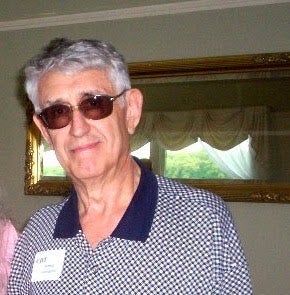
Arnie Casinghino, Circa 2011
Arnold “Arnie” Casinghino was one of the first to recognize the need to collaborate. In 1975, he began to curate scripts and tools into the CBT Tape project (CBT standing for the name of Arnie’s then-employer, the now-defunct Connecticut Bank and Trust Company). Interested users at that time would send Arnie a letter with a few dollars to request a tape, a method of distribution that carries on to today even though most users download the latest release from their website.
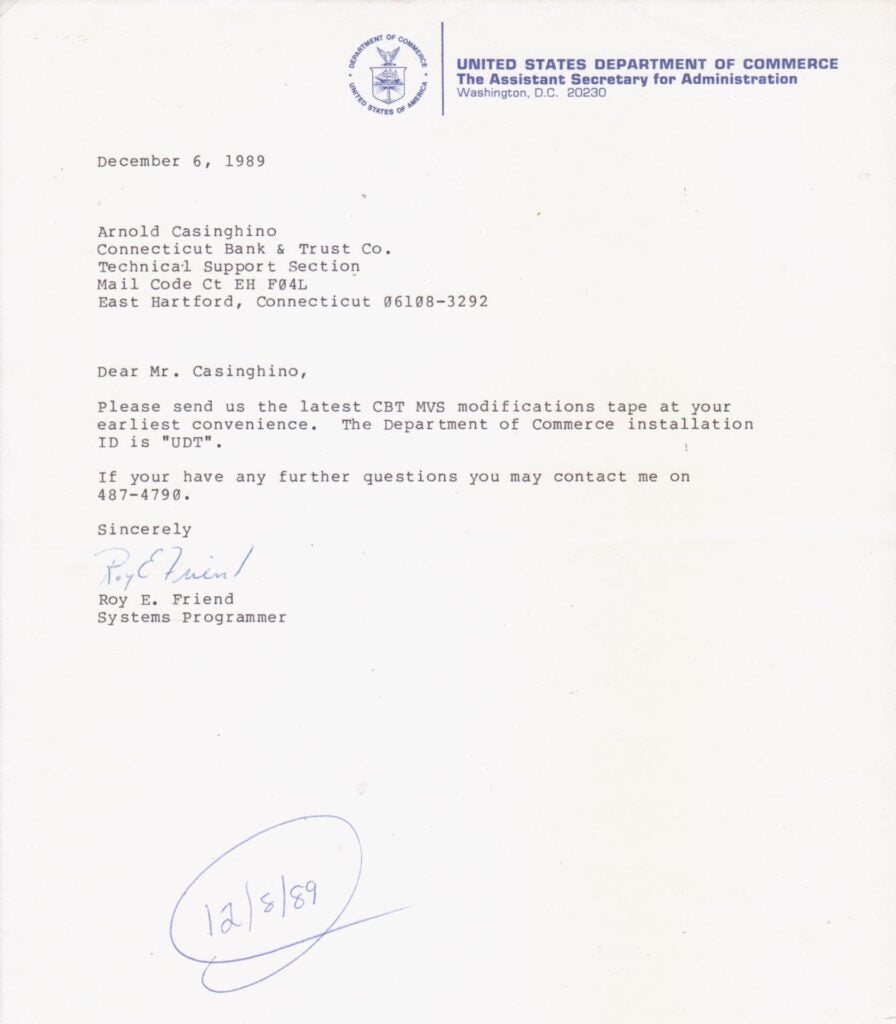
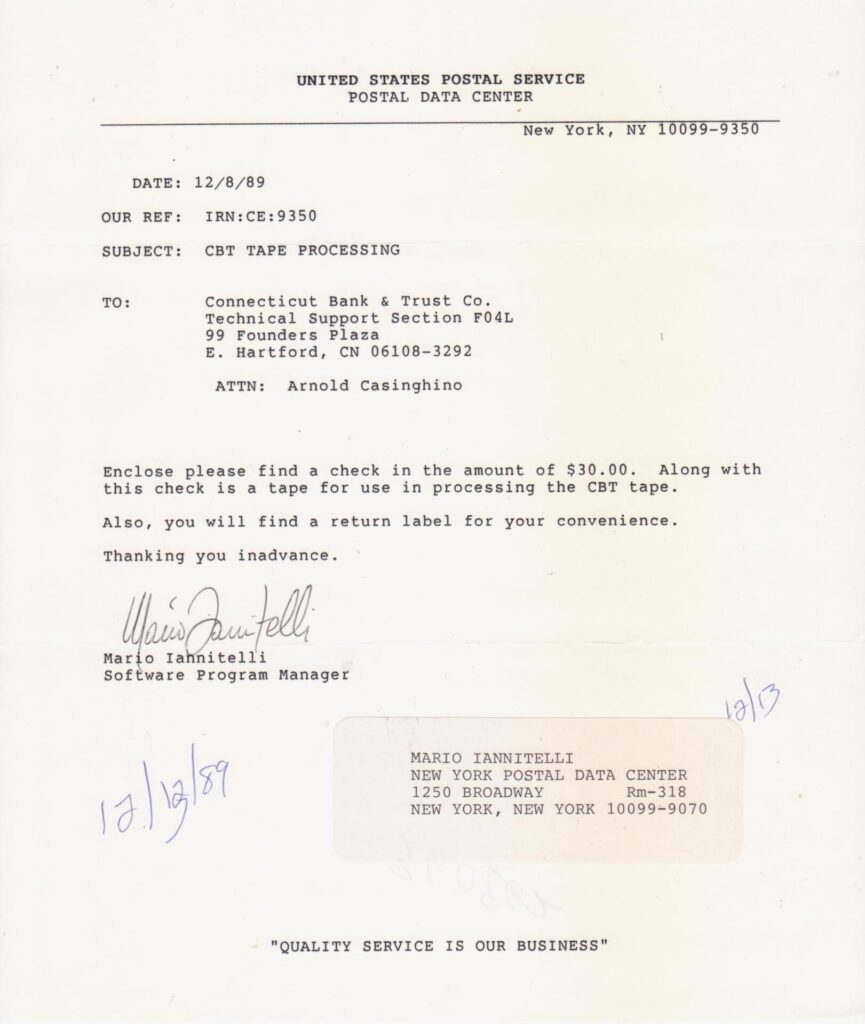
Casinghino’s vision culminated into a project that continues today and is now hosted at the Open Mainframe Project under the leadership of Sam Golab.
As Linux began to take the world by storm in the 1990s, a small group of mainframe enthusiasts started experimenting with Linux on IBM System 390 (a previously current generation of mainframe hardware). Over the last 20 years, others like Hitachi and Fujitsu also invested in enabling open source and Linux on their mainframe platforms. Linux on mainframe marked its official start on December 18, 1999, with IBM publishing a collection of patches and additions to the Linux 2.2.13 kernel.
The year 2000 brought momentum to Linux on the mainframe. The first true “Linux distribution” for these systems came in early 2000 as a collaboration between Marist College in Poughkeepsie, N.Y., and Think Blue Linux by Millenux in Germany. By October of that year, SUSE became the first vendor-supported Linux Distribution, in the first release of what’s now known as SUSE Enterprise Linux. SUSE’s first s390x distro represented an early example of mainframe leading the way in the evolution of computing technology.
Today, nine known Linux distributions currently provide an s390x architecture variant.
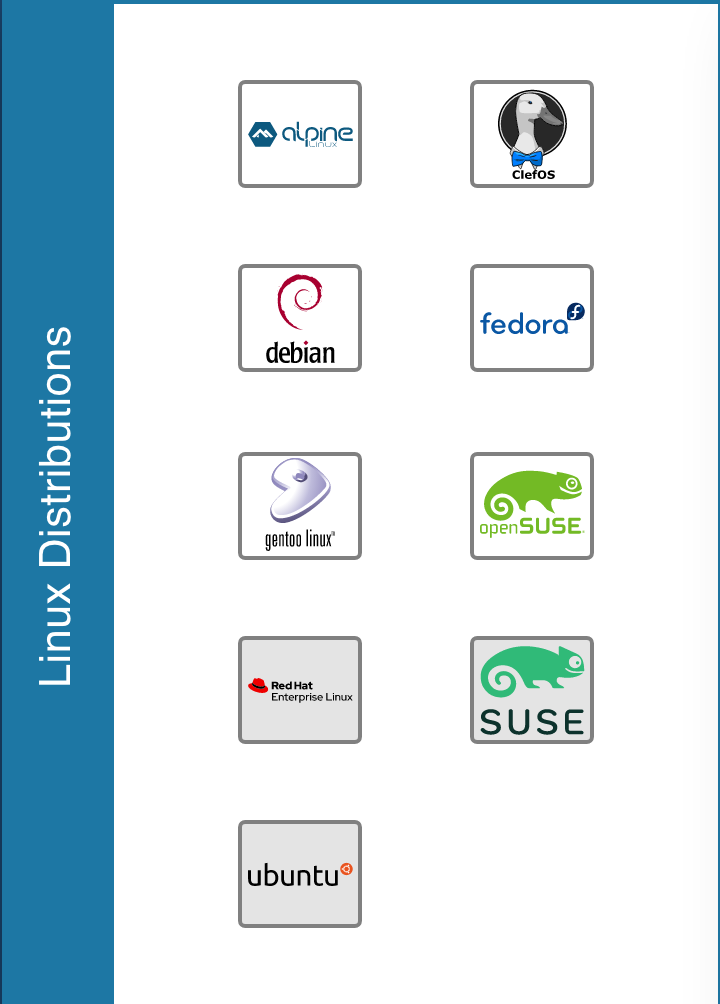
Source: https://landscape.openmainframeproject.org/open-source?zoom=200
The expansion of the mainframe as a platform for Linux continues to be nurtured in the Open Mainframe Project, with key projects outlined below helping Linux on the mainframe continue to be a platform used by Fortune 100 companies worldwide.
COBOL, which stands for “Common Business-Oriented Language,” is a compiled, English-like computer programming language developed for use as a business applications language. Its roots go back to the 1950s, and COBOL is still frequently used in many industries for key applications.
The COVID-19 pandemic in April 2020 put high levels of stress on various government services due to the unprecedented number of unemployment applications and other similar needs. This put the spotlight on COBOL, as it was then the predominant technology used for these systems. This also highlighted the perceived lack of talent to support these systems, which have code going back to the 1960s.
The vast COBOL and mainframe communities quickly addressed this need and made several efforts to provide a sustainable home for COBOL.
These initiatives were followed by a formal COBOL Working Group established later in 2020 to address the long-term challenges in building a sustainable COBOL ecosystem.
In early 2021, attention turned to the tooling ecosystem for COBOL developers with the launch of the COBOL Check project. This initiative enables test-driven development (TDD) practices for COBOL by providing a unit testing framework.
Traditionally, organizations have been challenged by integrating mainframe applications and data with the other systems that power their enterprise. This integration task further created a talent development challenge, as the paradigms between mainframe and other enterprise computing systems differed enough to make skills not easily transferable.
Broadcom, IBM, and Rocket Software saw this challenge and independently developed various frameworks to close this gap with the mainframe development experience. These include:
These components came together in August 2018 in Zowe, which was the first open source project launched that targeted the z/OS operating system (the predominant operating system on mainframe systems). The intention of bringing this project into the vendor-neutral Open Mainframe Project was to establish Zowe as the dominant development and integration tool for mainframe systems, aligning the mainframe community around Zowe.
After Zowe 1.0 was released in February 2019, the project quickly turned to enable a downstream ecosystem of vendor offerings to flourish by establishing the Zowe Conformance Program in August 2019. To date, there are more than 50 Zowe Conformant offerings from 6 different vendors in the mainframe industry.
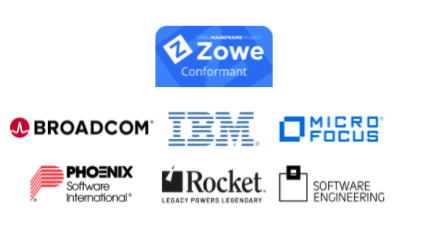
In addition, Zowe has brought new projects into its scope, with the following incubator projects as of August 2021:
Zowe boasts more than 300 contributors with more than 34,000 contributions as of August 2021.
One of the initial initiatives of the Open Mainframe Project was to establish a path to onboard students into the mainframe community, aligning with the current interest in open source development. Additionally, with the growth of open source on the platform, there was a need for maintainers for these projects with mainframe skills.
The Open Mainframe Project launched its first mentorship program in 2016, with seven students making contributions to the open source ecosystem on the mainframe. To date, more than 50 mentees have participated in this program, making important contributions to projects such as:
This summer, the Open Mainframe Project welcomed a record 14 mentees across the globe that had mentors in several projects including a few new ones such as ATOM, COBOL Programming Course, COBOL Working Group, Mainframe Open Education, Polycephaly, Software Discovery Tool, and Zowe.
The mentorship program has enabled these students to become part of the future mainframe talent, with mentorship graduates now in developer roles at ADP, IBM, SUSE, and others.
The mainframe has seen a resurgence in the past five years, with the launch of the Open Mainframe Project and the industry coming together in key open source projects in the COBOL, Linux on System Z, and z/OS ecosystems. The Open Mainframe Project hosts more than 20 projects and working groups supported by over 45 organizations as of August 2021, with no signs of slowing anytime soon.
Read more about the Open Mainframe Project in the 2020 annual report, and join us at Open Mainframe Summit on September 22-23, 2021.
Experts and industry leaders from financial services, technology and open source will gather for thought-provoking insights and conversations about how to best leverage open source software to solve industry challenges.
SAN FRANCISCO, September 16, 2021 — The Linux Foundation, the nonprofit organization enabling mass innovation through open source, along with co-host Fintech Open Source Foundation (FINOS), a nonprofit whose mission is to accelerate adoption of open source software, standards and best practices in financial services, today announced keynote speakers for Open Source Strategy Forum London (OSSF). The event takes place October 5, preceded by a FINOS Member event on October 4, in London, England. The schedule can be viewed here and the keynote speakers can be viewed here.
OSSF’s goal is to deepen collaboration across finance, open source and technology and drive innovation across the industry in order to deliver better code, faster. The event will feature 35+ sessions, revealing recent developments and the direction of open source in financial services across a wide range of topics and domains.
“We are entering what can only be referred to as the golden age for Open Source in Financial Services”, said Gabriele Columbro, Executive Director, FINOS. “In the last year not only have we seen an exponential growth in contributions from Financial Institutions – something frankly unprecedented – but we are now witnessing the industry coming together to solve long standing business challenges through open collaboration. I am truly excited to have so many leaders at OSSF sharing their vision for an open financial stack, and to be able to bring our community together for a fantastic and unique event like OSSF.”
Keynote speakers this year include:
Gabriele Columbro, Executive Director, FINOSNick Cook, Head of Global Strategy and Partnerships, Alliance for Innovative Regulation (AIR), and former Head of Innovation, UK Financial Conduct Authority (FCA)Jane Gavronsky, Chief Technology Officer, FINOS, and former Managing Director, Credit SuisseRussell Green, Managing Director, Deutsche Bank AGLiz Rice, Chief Open Source Officer, Isovalent
Conference Session Highlights:
Creating an Open Source Data Standard for Financial Services Regulation – Taniem Choudhury, Deutsche BankAn Open-sourced Solution to Data Governance? How Legend May Be the Answer to Data Quality Concerns in the Financial Industry – Ffion Acland & Beeke-Marie Nelke, Goldman SachsMorphir: A Single Language for Business and Technology – Attila Mihaly, Morgan StanleyPolicy Compliance with Sigstore: From Signing Software to Validating the Whole Software Supply Chain – Axel Simon, Red HatContaining the Chaos While Embracing Kubernetes Based Technology in Finance, Rob Knight, SUSENavigating Open Source Risk: A Strategic Approach – Dawn Foster, VMware
Attending companies include: Adaptive Financial Consulting Limited, Audace Labs, Avanade, Bitergia, Canonical, Citi Group, Cosaic, Demodyfi, Deutsche Bank, Digital Asset, EPAM Systems, Evolveum, Fidelity Investments, GitHub, GitLab, Goldman Sachs, IHS Markit, ING, International Swaps and Derivatives Association, Itaú Unibanco SA, Large Credit Union Coalition, London Stock Exchange, Morgan Stanley, Nomura Holdings, Point72 Asset Management, Red Hat, Scott Logic, Symphony, TD Securities, Wipro, U.S. Bank, and many more.
Registration is available for 460 GBP. Members of The Linux Foundation receive a 20 percent discount – members can contact events@linuxfoundation.org to request a member discount code. Members of FINOS can attend at no cost – members can contact ossf@finos.org to request the FINOS Member registration code.
Health and Safety
Attendees will be required to be fully vaccinated against the COVID-19 virus and wear a mask while onsite at the event. Additionally, all attendees will need to comply with all on-site health measures, in accordance with The Linux Foundation Code of Conduct. To learn more, visit the Health & Safety webpage and read our blog post.
Press
Members of the press who would like to request a press pass to attend should contact Kristin O’Connell.
About the Linux Foundation
Founded in 2000, the Linux Foundation is supported by more than 2,000 members and is the world’s leading home for collaboration on open source software, open standards, open data, and open hardware. Linux Foundation’s projects are critical to the world’s infrastructure, including Linux, Kubernetes, Node.js, and more. The Linux Foundation’s methodology focuses on leveraging best practices and addressing the needs of contributors, users and solution providers to create sustainable models for open collaboration. For more information, please visit linuxfoundation.org.
The Linux Foundation Events are where the world’s leading technologists meet, collaborate, learn and network in order to advance innovations that support the world’s largest shared technologies.
Visit our website and follow us on Twitter, Linkedin, and Facebook for all the latest event updates and announcements.
The Linux Foundation has registered trademarks and uses trademarks. For a list of trademarks of The Linux Foundation, please see its trademark usage page: www.linuxfoundation.org/trademark-usage. Linux is a registered trademark of Linus Torvalds.
###
Media Contact
Kristin O’Connell
The Linux Foundation
koconnell@linuxfoundation.org
The post The Linux Foundation and Fintech Open Source Foundation Announce Keynote Speakers for Open Source Strategy Forum London 2021 appeared first on Linux Foundation.
Read More at Enable Sysadmin